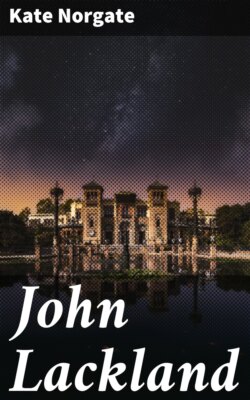John Lackland

Реклама. ООО «ЛитРес», ИНН: 7719571260.
Оглавление
Kate Norgate. John Lackland
John Lackland
Table of Contents
LIST OF MAPS
CHAPTER I. JOHN LACKLAND. 1167–1189
FOOTNOTES: [Skip footnotes]
CHAPTER II. JOHN COUNT OF MORTAIN. 1189–1199
FOOTNOTES: [Skip footnotes]
CHAPTER III. JOHN “SOFTSWORD” 1199–1206
FOOTNOTES: [Skip footnotes]
CHAPTER IV. KING JOHN. 1206–1210
FOOTNOTES: [Skip footnotes]
CHAPTER V. JOHN AND THE POPE. 1210–1214
FOOTNOTES: [Skip footnotes]
CHAPTER VI. JOHN AND THE BARONS. 1214–1215
FOOTNOTES: [Skip footnotes]
CHAPTER VII. JOHN LACKLAND. 1215–1216
FOOTNOTES: [Skip footnotes]
Note I. John and the De Braoses
Note II. EUSTACE DE VESCI AND ROBERT FITZ-WALTER
INDEX
Отрывок из книги
Kate Norgate
Published by Good Press, 2019
.....
There was nine years’ difference in age between Geoffrey and John; but already a clear-sighted onlooker could see that the two brothers were cast in the same mould, morally as well as physically. Both were short in stature—shorter than their father, and far below the height of young Henry or of Richard; they were well built, but on a small scale. The likeness between them went deeper than that of outward form. As Gerald expresses it, “while one was corn in the blade, the other was corn in the ear”; but the blade developed fast. Before John was twenty, Gerald, though evidently striving hard to make the best of him, was driven to confess that, “caught in the toils and snared by the temptations of unstable and dissolute youth, he was as wax to receive impressions of evil, but hardened against those who would have warned him of its danger; compliant to the fancy of the moment; making no resistance to the impulses of nature; more given to luxurious ease than to warlike exercises, to enjoyment than to endurance, to vanity than to virtue.”[41] As soon as the king was out of Normandy, Geoffrey and John joined hands; they collected “a great host,” with which they marched, burning and plundering, into Poitou. Richard retaliated by harrying Britanny, till Henry, on learning what was going on, summoned all three brothers to England. They obeyed the summons,[42] and in December a “final concord” between them was drawn up and sealed at Westminster.[43] Whatever were its terms, they evidently did not include any cession of territory by either of the elder brothers to the youngest. Geoffrey was at once sent back to Normandy “to take care of it with its other guardians”;[44] and immediately after Christmas Richard obtained leave to return to Poitou.[45] The king’s project of transferring Aquitaine to John had been merely a passing fancy. Of the scheme for establishing him in Ireland Henry had never lost sight; and this scheme he now determined to carry into effect.
Before he could do so, however, a yet loftier destiny was proposed to him for his favourite son. At the end of January 1185 Heraclius, the patriarch of Jerusalem, came to England to implore Henry’s aid for the perishing realm of Palestine. King Baldwin IV. was dying; after him there was but one male heir left of the blood of King Fulk of Anjou and Queen Melisenda, and that one was a little child. From the story as told by Gerald it seems plain that Heraclius aimed at something more than merely persuading Henry to take the command of a crusade; his project was nothing less than a transfer of the succession from the younger to the elder Angevin line—from the infant son of Fulk’s grand-daughter to a son of Fulk’s grandson, Henry. When the king of England, after taking counsel with his “faithful men,” declared that he could not in person undertake the deliverance of the Holy Land from its enemies, Heraclius still persisted in his other request; he implored Henry to send at least one of his sons—if even it were only John—“that from this scion of the Angevin house the seed royal might be raised up and spring into new life.” The king, however, would not listen. John, it is said, was inclined to embrace the patriarch’s suggestion, and threw himself at his father’s feet to beg his consent, but in vain.[46] At Mid-Lent Henry knighted him at Windsor, and publicly gave out that he was to proceed at once to Ireland, where he was destined to be king.[47]
.....